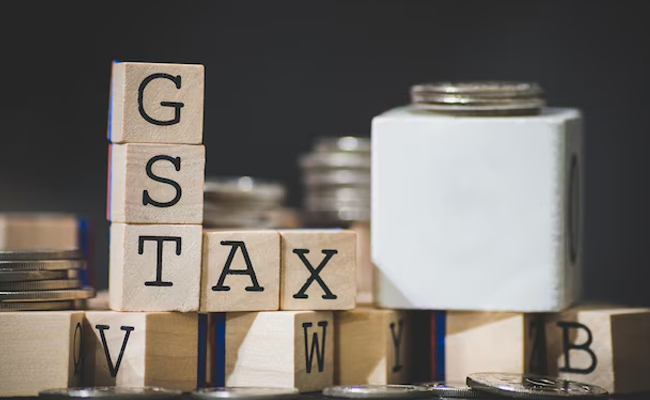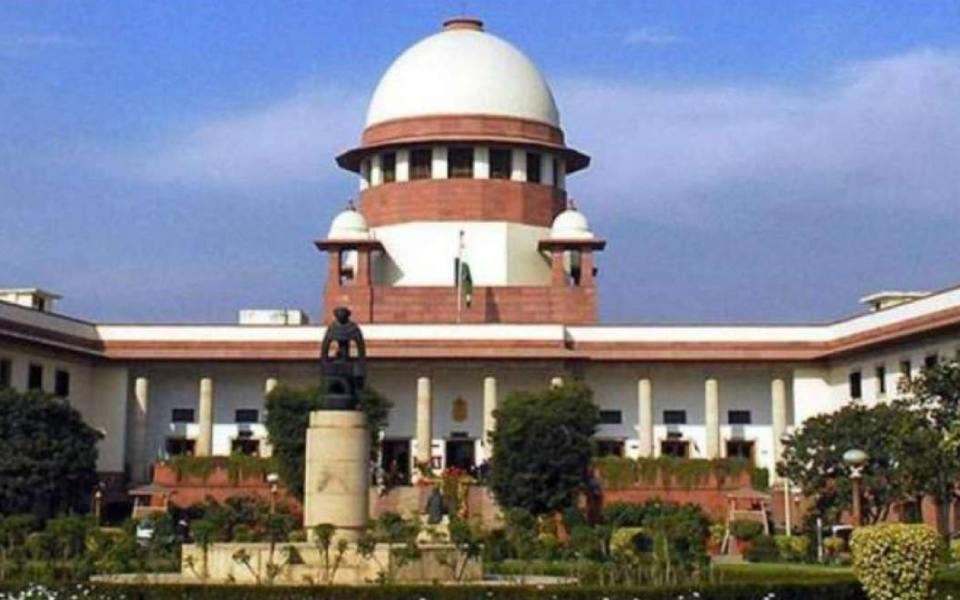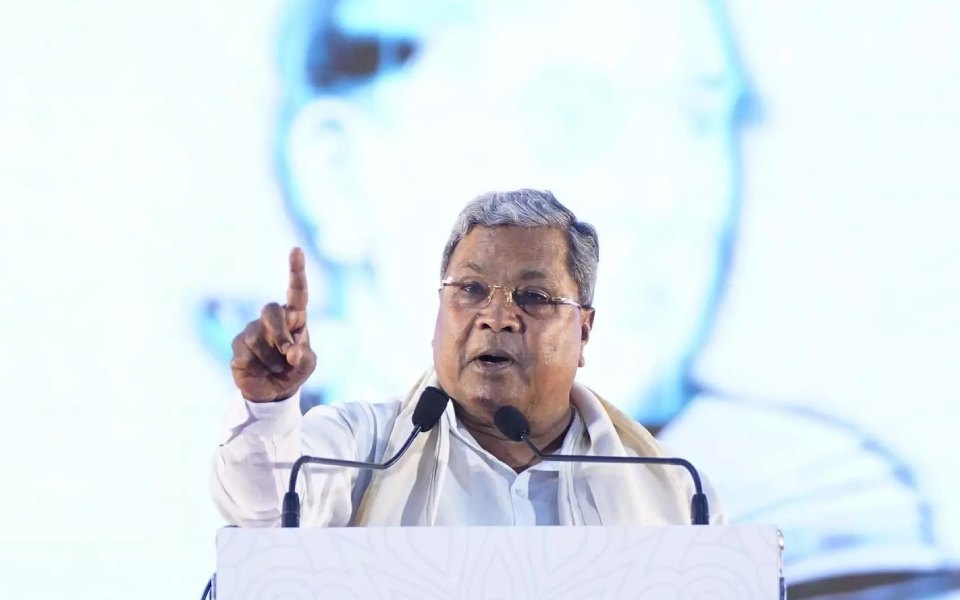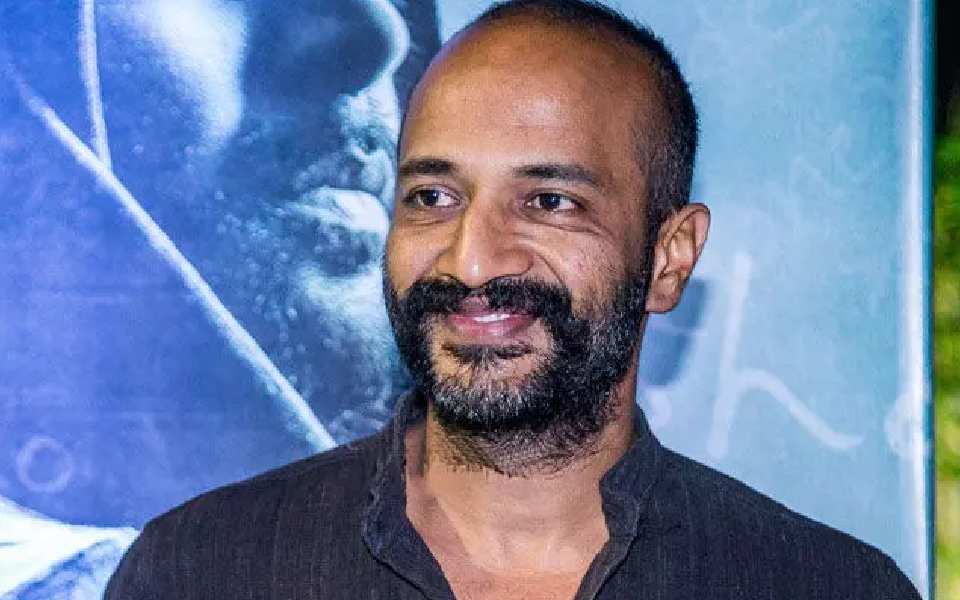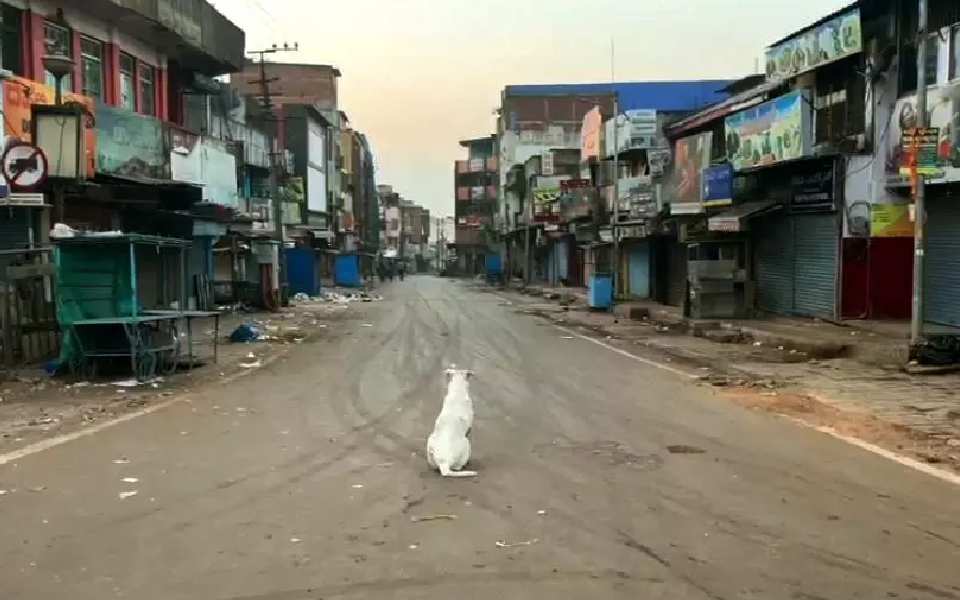Ahmedabad (PTI): The opposition Congress on Thursday called India’s GST the world’s “worst” such regime, accusing the government of being interested only in imposing new levies under the cover of rationalisation.
The country has reached a point where the middle class is propping the government’s tax revenue because corporates are not paying as much tax revenues due to a downturn in business, claimed party spokesperson Rangarajan Mohan Kumaramangalam here.
Calling the present system “tax terrorism”, the Congress leader hoped Prime Minister Narendra Modi will “rectify the faulty” GST system.
“We have a regime that has created one of the worst GST (Goods and Services Tax) systems in the whole world. In about 50 countries, there is a tax collection system equivalent to GST. But nobody has such complications which are put in our GST system,” he said.
“Just last month, Finance Minister Nirmala Sitharaman again tried to complicate GST even more by putting three different taxes on three different forms of popcorn,” said the Congress leader in the press conference.
He claimed that the middle class is shrinking and the ultra-rich and upper middle class are driving consumption. “So this government now wants to put everything in the luxury bucket and collect 28 per cent GST,” he said.
Kumaramangalam alleged that the government is now trying to tax the only people left who are actually buying products. “In the end, that consumption will also come down, resulting in further job losses,” he said.
Instead of focusing on the shrinking middle class and the tax burden on it, the government wants to collect tax from wherever it can, said the Congress leader.
“It will come up with some reason to impose new taxes and cess under GST in some sort of vague method of rationalisation. In the end, it will kill whatever consumption, which is already reducing, (happening) in our economy,” he said.
According to a new study, 64 per cent of India’s GST collection comes from the bottom 50 per cent of the population, claimed Kumaramangalam.
“We are going after the poorest of the poor. Half of the GST is taken from them. Such a tax system is the main reason why our economy is slowing down. Now it has become apparent and GDP numbers don’t lie,” he said.
Latest GDP figures suggest that every sector is suffering, he said. Six months ago, all companies had started complaining that demand had slowed down because the common men did not have enough money, said the Congress leader.
“For the first time, the amount of money collected from companies is less than the tax revenue collected from individual taxpayers which is going up. Corporate tax collection is up 1.2 per cent. While GST collection is up 12 per cent, income tax is up by 20 per cent,” he said.
The individual taxpayers are funding the government and new tax slabs are being introduced on goods consumed by the common public, he said.
“Today, there are nearly nine different rates of GST, starting from 0 per cent to 28 per cent. If we consider cess, some products like tobacco attract a 35 per cent tax,” he said.
According to Kumaramangalam, confusion about tax slabs is adversely affecting small businesses because compliance has become a huge challenge.
“This (compliance) is not an issue for large corporates because they have a separate department to handle it. These complications are benefiting large companies only. The economy is slowing down because the government is taking people’s money, leaving them with nothing to spend,” he said.
He batted for tax reforms saying they are needed to achieve a healthier GDP (Gross Domestic Product) growth of at least 8 per cent.
India’s economic growth rate is estimated to slip to a four-year low of 6.4 per cent in 2024-25, mainly on account of poor showing by the manufacturing and services sector, according to government data released on Tuesday.
“Congress had earlier proposed a GST system having only three slabs. The prime minister had adopted many of our promises, such as the apprenticeship scheme, in the past. Thus, we are confident that he will also rectify this faulty GST system because this has now become tax terrorism,” he added.
Let the Truth be known. If you read VB and like VB, please be a VB Supporter and Help us deliver the Truth to one and all.
New Delhi, Jan 9: The Supreme Court on Thursday dismissed a batch of pleas seeking to review its October 2023 verdict declining legal sanction to same-sex marriage.
A five-judge bench of Justices B R Gavai, Surya Kant, B V Nagarathna, P S Narasimha and Dipankar Datta took up about 13 petitions related to the matter in chambers and dismissed them.
"We do not find any error apparent on the face of the record. We further find that the view expressed in both the judgements is in accordance with law and as such, no interference is warranted. Accordingly, the review petitions are dismissed," the bench said.
It said the judges have carefully gone through the judgements delivered by Justice (since retired) S Ravindra Bhat speaking for himself and for Justice (since retired) Hima Kohli as well as the concurring opinion expressed by Justice Pamidighantam Sri Narasimha, constituting the majority view.
The bench also rejected a prayer made in the review petitions for hearing in an open court.
According to practice, the review pleas are considered in chambers by the judges.
The new bench was constituted after Justice Sanjiv Khanna, the present CJI, recused from hearing the review petitions on July 10, 2024.
Notably, Justice P S Narasimha is the only member of the original Constitution bench comprising five judges which delivered the verdict, as former CJI D Y Chandrachud and Justices S K Kaul, Ravindra Bhat and Hima Kohli have retired.
A five-judge Constitution bench led by then CJI Chandrachud on October 17, 2024, refused to accord legal backing to same-sex marriages and held there was "no unqualified right" to marriage with the exception of those recognised by law.
The apex court, however, made a strong pitch for the rights of LGBTQIA++ persons so that they didn't face discrimination in accessing goods and services available to others, safe houses known as "garima greh" in all districts for shelter to members of the community facing harassment and violence, and dedicated hotlines in case of trouble.
In its judgement, the bench held transpersons in heterosexual relationships had the freedom and entitlement to marry under the existing statutory provisions.
It said an entitlement to legal recognition of the right to union, akin to marriage or civil union, or conferring legal status to the relationship could be only done through an "enacted law".
The five-judge Constitution bench delivered four separate verdicts on a batch of 21 petitions seeking legal sanction for same-sex marriages.
All five judges were unanimous in refusing the legal recognition to same-sex marriage under the Special Marriage Act and observed it was within Parliament's ambit to change the law for validating such a union.
While former CJI Chandrachud wrote a separate 247-page verdict, Justice Kaul penned a 17-page judgement where he broadly agreed with the former's views.
Justice Bhat, who authored an 89-page judgement for himself and Justice Kohli, disagreed with certain conclusions arrived at by the former CJI, including on applicability of adoption rules for such couples.
Justice Narasimha in his 13-page verdict was in complete agreement with the reasoning and conclusion of Justice Bhat.
The judges were unanimous in holding that queerness was a natural phenomenon and not an "urban or elite" notion.
In his judgement, the former CJI recorded Solicitor General Tushar Mehta's assurance of forming a committee chaired by the cabinet secretary to define and elucidate the scope of entitlements of such couples in a union.
The LGBTQIA++ rights activists, who won a major legal battle in 2018 in the Supreme Court, which decriminalised consensual gay sex, moved the apex court seeking validation of same-sex marriages and consequential reliefs such as rights to adoption, enrolment as parents in schools, opening of bank accounts and availing succession and insurance benefits.
Some of the petitioners sought the apex court to use its plenary power besides the "prestige and moral authority" to push the society to acknowledge such a union and ensure LGBTQIA++ persons led a "dignified" life like heterosexuals.

